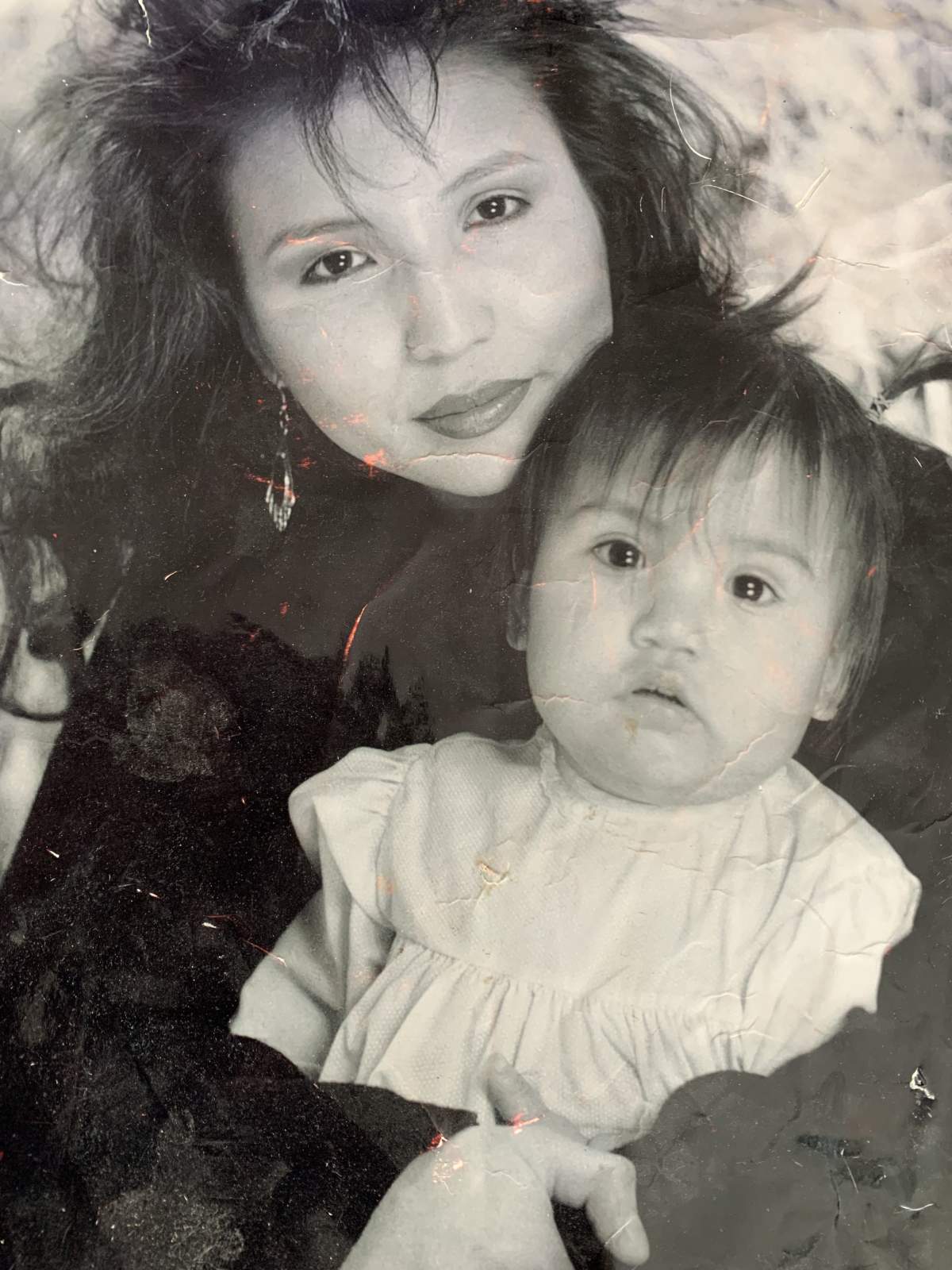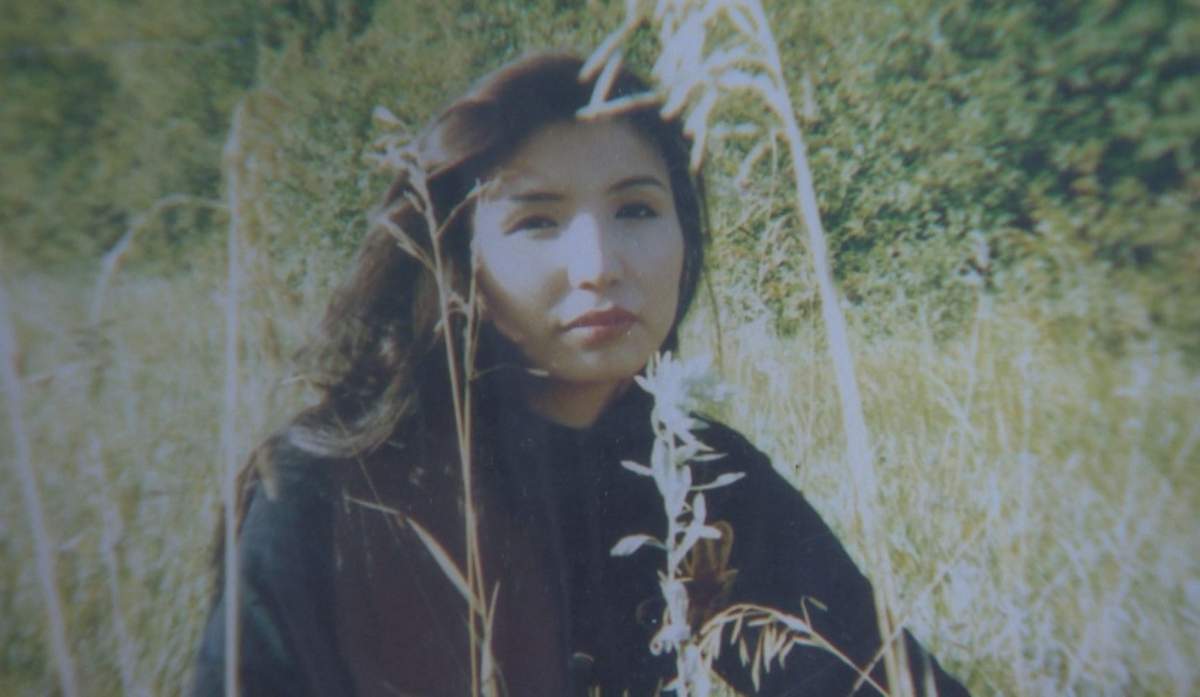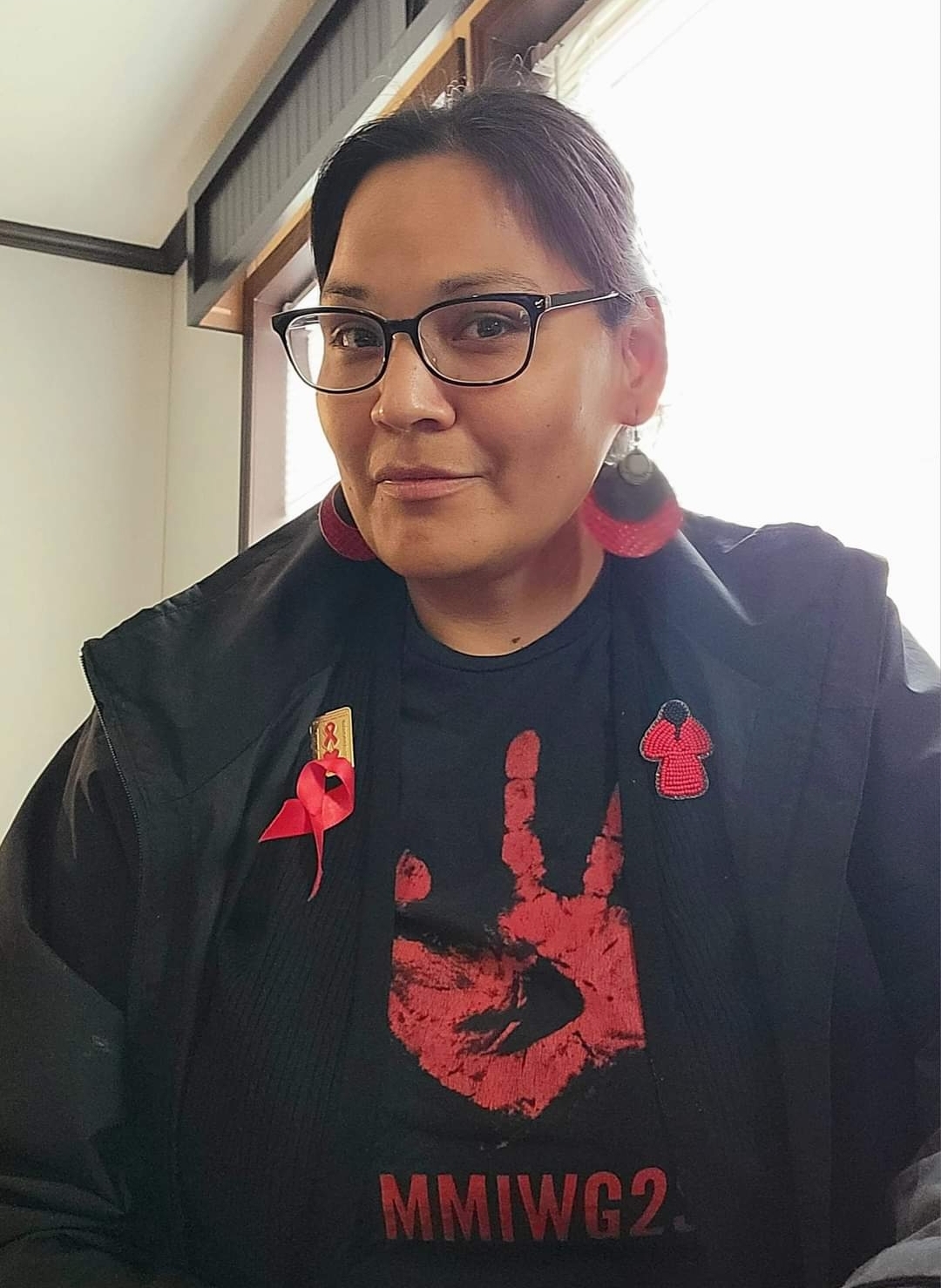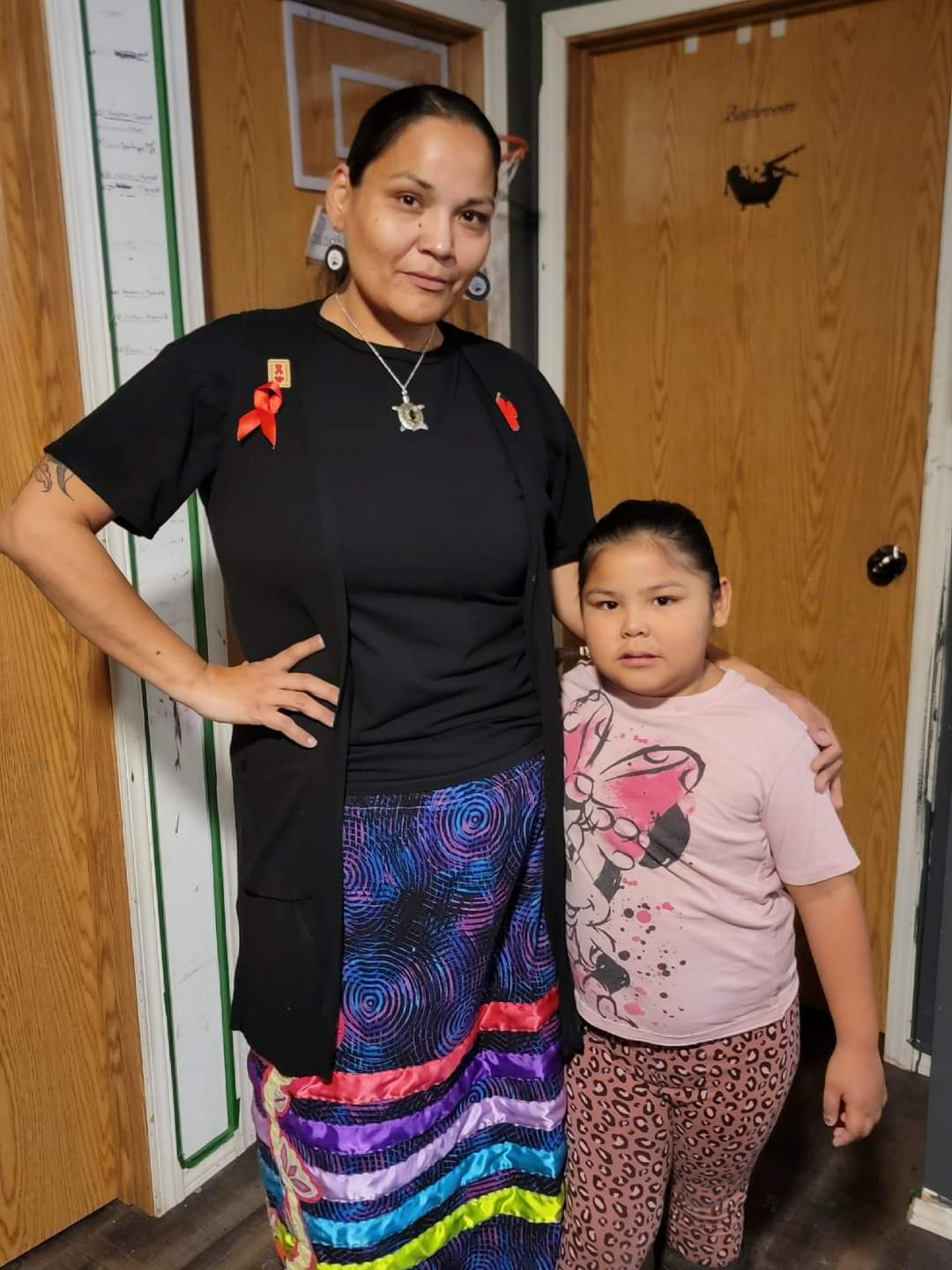December 1st marks World AIDS Day and the start of Indigenous AIDS Awareness Week to educate the public about HIV health-related issues and to break the stigma.

This is the opportunity that Ntawnis Piapot from the Piapot Cree Nation takes to share her mother’s story. Piapot’s mother, Elvina, was diagnosed with HIV in the mid 90s and was diagnosed with AIDS when Piapot started university in 2007.
“I caught myself a lot of the time taking care of her and taking on that caretaker role, not realizing what a big impact that would have on me as a student (and) a young woman,” said Piapot.
“Behind closed doors, I was battling something that I didn’t think anybody would understand. And I never spoke about my mom or her diagnosis until after I graduated. There was a sense of shame. There was this sense of stigma attached to it. And I always felt like it was something that nobody would understand. In turn, not speaking about it made me feel very isolated.”
Piapot was a little girl when she first learned that her mother was diagnosed with HIV, but her mother prepared Piapot to go out into the world with as much information as possible.
Piapot remembers her mother as one of the most beautiful women she ever knew, who had a great sense of humour, who loved fashion and did everything with passion. Elvina shared her story at AIDS conferences.
“She would speak to the young women, and they would like listen to every word that she said … it resonated with them that it can happen to anybody, and you have to keep yourself safe,” she said.
“My mom lived a really full life and that’s one thing that we like to reminisce about and keep her memory alive,” said Piapot. “She went to Oka (Kanesatake Resistance), she lived in Banff, she travelled, and she was always the life of the party.”

Get breaking National news
It wasn’t until after her mother passed in 2012 that Piapot started to share her mother’s story without fear or shame.
“I learned that owning your story … it’s empowering and it’s given me strength,” she said. “(My mom) gave me permission to share her story and to do something good with it. And that’s what I hope I’m going to do … hopefully I can show someone out there who might be going through the same thing, that they’re not alone … there’s nothing to be ashamed of.”
Living with HIV
Dessie Jo Sutherland from Beardy’s and Okemasis Cree Nation identifies herself by her name, followed by her HIV status.
“I have HIV, and I’ve had it for 11 years. I am okay. I’m probably the healthiest I’ve ever been,” said Sutherland.
Sutherland says she lives in a time that HIV can be treated and not be looked at as a death sentence. But it wasn’t always like that. Sutherland said when she first received her diagnosis in 2012, the news “hit her like a ton of bricks.”
“I was just looking at the doctors, like, ‘really?'” she said. “I was like, ‘okay, tell me what to do. Tell me what to do. Whatever I need to do, I’ll do.”
Sutherland was lined up with an HIV specialist and she was placed on medication which she likes to say put the virus “to sleep.”
“I was scared right off the hop. I was scared for myself. I was scared for my children. And I stayed scared for years,” said Sutherland. “There was no way I was going to let anyone in the external world know that I have HIV because I was scared of how they were going to treat me and treat my children.”
After her diagnosis, Sutherland gave birth to two children without passing the virus onto them. She credits having a very strong health-care team during her pregnancies. It was only a couple years ago that Sutherland decided to openly share her status with others as she said there was so much triumph in her journey. But she needed her children’s permission to share.
“I sat with my kids, and I was talking to them about what the doctor wanted me to do and right off the hop they were like, ‘Do it mom. People need to know. We’re ready and we’ve been ready’.”
Throughout her journey, one of the biggest questions that comes up for Sutherland is being asked how she contracted HIV. Sutherland said she lived a street lifestyle consumed with prostitution and being an injection drug user. It took years to turn her life around.
“That’s the weight that I carry for the rest of my life,” she said. “I’ve had diabetes, I’ve had osteoarthritis, high blood pressure. I have all these things. And HIV amongst them all was the easiest thing to look after. (With) one pill a day, I’m able to have children, I’m able to have a relationship. When it comes to disclosing to the community, I’m overwhelmed by the open arms, the comfort, the compassion, the understanding and the welcoming I have.”
Sutherland is invited to give presentations about her journey but also to educate others about the rates of HIV and AIDS in Saskatchewan and how people need to protect themselves. According to Public Health Agency of Canada, Saskatchewan has the highest rates of HIV diagnoses in the country.
“There’s a crisis happening here. There isn’t enough being done,” she said. “I’m standing in front of Saskatchewan and saying, ‘Let’s work together. Let’s do this together. Because we can get those numbers down. Let’s bring our strengths to the table. It’s about everybody with the same goal in mind. Let’s keep the same lens and look after people here in the province.'”
Sutherland encourages people to get themselves tested for HIV and to know they are not alone on this road.
“We are out here. We’re going to be okay. Get tested. Know your status. Get on treatment,” she said. “Reach out to us because we’re out here and we’re navigating this to with you. We can help.”












Comments